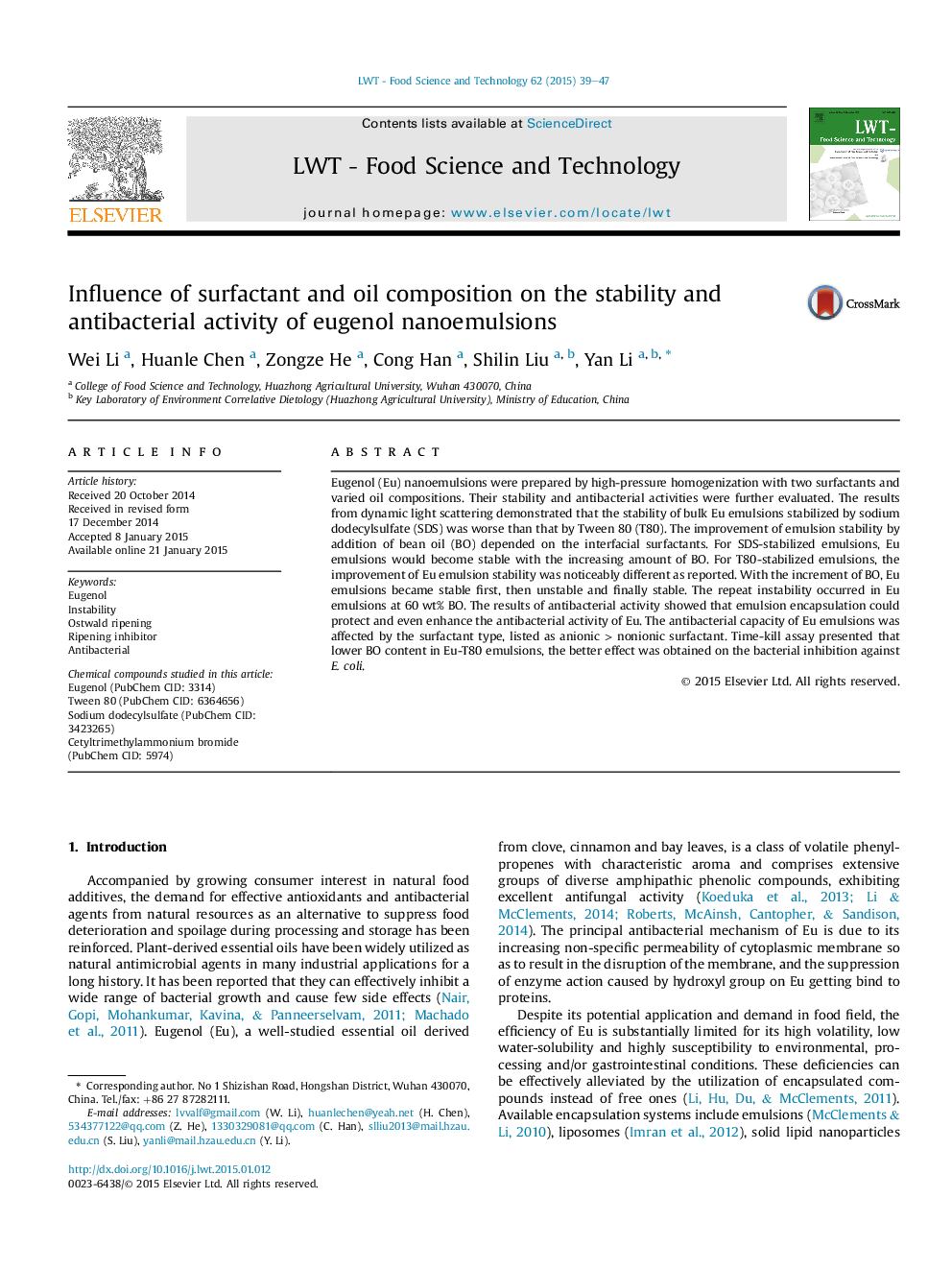| Article ID | Journal | Published Year | Pages | File Type |
|---|---|---|---|---|
| 6401247 | LWT - Food Science and Technology | 2015 | 9 Pages |
â¢The instability of bulk eugenol emulsions was suppressed more by using Tween 80.â¢Destabilization occurred again in Tween 80-eugenol emulsions at 60 wt% bean oil.â¢Antibacterial activity of eugenol increased after encapsulation.
Eugenol (Eu) nanoemulsions were prepared by high-pressure homogenization with two surfactants and varied oil compositions. Their stability and antibacterial activities were further evaluated. The results from dynamic light scattering demonstrated that the stability of bulk Eu emulsions stabilized by sodium dodecylsulfate (SDS) was worse than that by Tween 80 (T80). The improvement of emulsion stability by addition of bean oil (BO) depended on the interfacial surfactants. For SDS-stabilized emulsions, Eu emulsions would become stable with the increasing amount of BO. For T80-stabilized emulsions, the improvement of Eu emulsion stability was noticeably different as reported. With the increment of BO, Eu emulsions became stable first, then unstable and finally stable. The repeat instability occurred in Eu emulsions at 60 wt% BO. The results of antibacterial activity showed that emulsion encapsulation could protect and even enhance the antibacterial activity of Eu. The antibacterial capacity of Eu emulsions was affected by the surfactant type, listed as anionic > nonionic surfactant. Time-kill assay presented that lower BO content in Eu-T80 emulsions, the better effect was obtained on the bacterial inhibition against E. coli.
